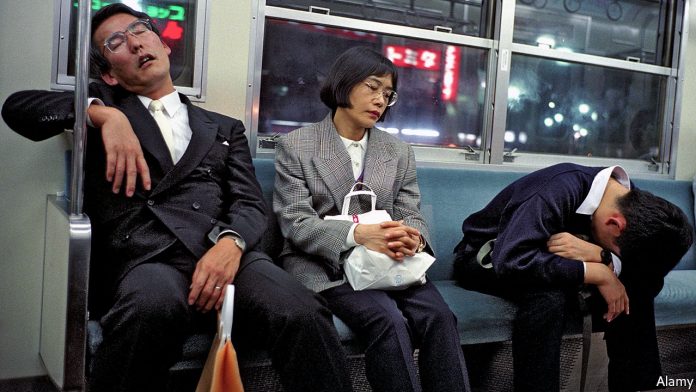Japan’s notorious culture of overwork has taken its toll, especially on the younger generation. Once a symbol of pride and hard work, images of exhausted salary men leaving the office late into the night and missing the last train home are now being criticised. After experiencing a period of economic stagnation and a string of work related suicides and deaths, Japan has finally realised how obsolete their working culture truly is.
As a result, there is currently a shortage of labour in Japan where new young talent are turning down jobs that do not provide a positive working culture. Companies are now scrambling to offer more benefits in order to attract these new potential hires. It is ultimately a generational conflict where the old guard espouses long hours, strict top-down discipline and rewards based on loyalty and seniority. The new blood however, resents everything this stands for and knowingly demand better treatment.
Japan’s work culture issue is hauntingly similar to the ‘996’ work culture that is currently plaguing China. Businesses from both nations encourage unhealthy hours of overtime and dedication to the job while their respective governments fail to properly enforce their own labour laws.
As for Japan, companies are beginning to take steps to appeal to the limited number of workers they have left. Many firms now ask employees to focus on their clients rather than their bosses, set their own goals instead of waiting for orders and allow them to work from home, avoid overtime and take more vacation.
HR experts say that this is not yet the norm in the country, but the practice is becoming increasingly common and that productivity and economic growth is already seeing a positive trend.
During Japan’s late 1980s-early 90s economic boom, when the West faced frequent worker unrest, Japanese companies developed an advantage in regards to technology, as well as the devotion and discipline of their skilled workers.
The culture required maximum effort for any task, regardless of magnitude, and no questioning of orders. However, in some cases that developed into an ethos of pleasing bosses rather than customers.
Hiroaki Izumi, general manager in charge of the compliance control department at Sumitomo Life Insurance, recalls holding unneeded in-house meetings and crafting elaborate summaries of business updates from each branch around the country. He states that such practices left less time for simple but useful tasks, such as making explanatory brochures for customers or improving their privacy protection.
Kaito Fukuda, a 20-year old who will soon enter the workforce, told Reuters that he does not want to become a salary man; slaving away at his desk into the night.
“I’ve been interviewing and I can tell that companies feel they have to compete to hire young people by showing they have an appealing work culture”, he said outside the busy Shibuya train station after leaving a career seminar for fresh graduates.
“Of course I want money, but I also want to be able to use my vacation days”, he said. “If work is not fun I won’t last long on the job”.



































